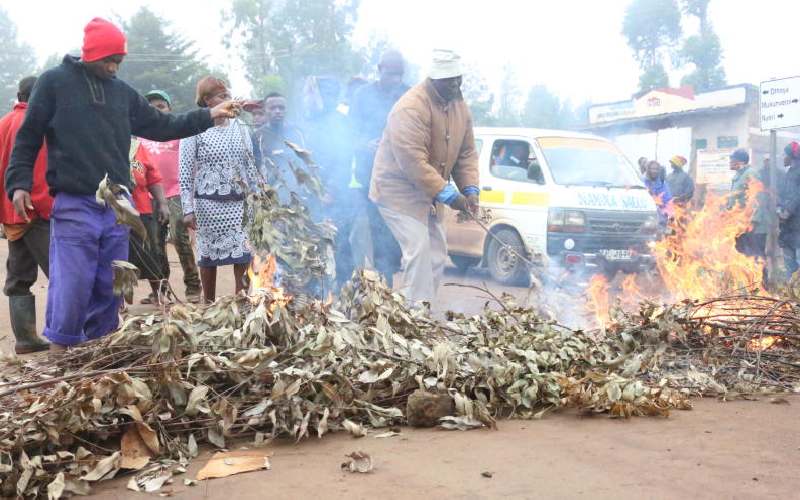×
The Standard e-Paper
Home To Bold Columnists

Residents of Gakindu Village in Mukurwe-ini barricades the Othaya - Mukurweini Highway over allegations that officers at Gakindu Police Post are protecting a serial sexual offender. [Kibata Kihu, Standard]
Kenya may wish to reconsider its policy disallowing plea bargaining for sexual offences crimes, in the best interests of its victims.